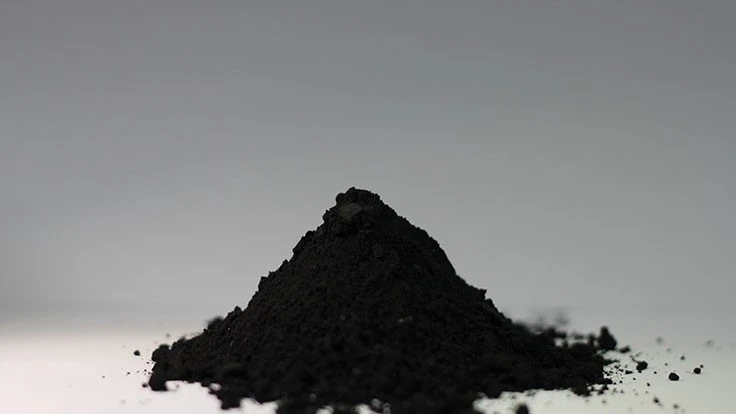
Photo from Recycling Today Media Group Photo Archive
Aqua Metals Inc., a metals recycling company based in Reno, Nevada, has announced it is deploying its AquaRefining technology in a lithium-ion battery recycling pilot at its Innovation Center in Tahoe-Reno Industrial Center that will begin operations later this year.
Additionally, the company has plated high-purity cobalt and produced manganese dioxide from lithium-ion battery black mass using this technology. With the production of these two materials, the company says it has successfully recovered all the high-value metals from used lithium-ion batteries, including lithium hydroxide, copper and nickel at bench scale.
“With the successful completion of all of our metals recycling proof points at bench scale, we are rapidly deploying the fully integrated pilot at our Innovation Center located in the Tahoe-Reno Industrial Center [in Sparks, Nevada] this summer and we expect to commence operations in the coming months,” says Steve Cotton, president and CEO of Aqua Metals.
At the early pilot stage, Cotton says the process will be able to recycle 6 to 10 metric tons of lithium-ion black mass per month. The company plans to scale to commercial demonstration quantities each month throughout the year to scale to 1,000 metric tons of annual production by the end of 2023. However, Cotton says the process can handle various outputs depending on the scale of the operation.
The company’s AquaRefining technology takes about a day to process material. The AquaRefining technology is a room-temperature, water-based process that is nonpolluting and uses an electroplating process that builds metal by plating one atom at a time. The company says its process uses 95 percent fewer chemicals than traditional methods, and those that are used get reused instead of going to waste.
The process, first used on lead-acid batteries, allows Aqua Metals to separate and selectively plate copper, cobalt and nickel plus lithium and lithium hydroxide form, according to the company. These metals can be sold immediately or be processed into battery cathode precursor materials for lithium-ion batteries using proven methods currently in use.
Cotton says 140 million electric vehicles (EV) are predicted globally by 2030, creating a massive demand for lithium-ion batteries and the critical minerals used to make them. Additionally, by 2025, he says he expects about 400,000 lithium-ion batteries will reach their end of life.
Cobalt is one of the most expensive materials found in many lithium-ion batteries. Market research from IDTechEx, Cambridge, England, estimates cobalt shortages and supply challenges for lithium and other materials in the next few years. The company says future materials shortages could increase the cost of these metals and potentially decelerate the transition to electric vehicles and energy storage.
Aqua Metals says because of higher costs, geopolitical risks and environmental issues, mining won’t meet the demand for electric vehicles made by companies like General Motors, Toyota and Volvo.
“We have proven at bench scale that we can extract high-quality metals with what we believe is the lowest environmental footprint of any lithium-ion battery recycling technology under development,” says David Regan, vice president of commercial at Aqua Metals. “Any company looking to partner with a battery metals recycling leader will appreciate that our fundamentally nonpolluting Li AquaRefining process is expected to recover all the high-value materials in lithium-ion batteries sustainably and more cost-effectively than other recycling methods and mining.”
Right now, the company is working on scaling the process at its facility in Sparks. However, if the process is scaled successfully, Cotton says Aqua Metals will look to commercialize the process at a smaller operation, then bring it to a bigger operation and then implement it at several facilities. Cotton declines to say what businesses Aqua Metals is considering but says the company is identifying where to take its refining process next.
Last year, the company partnered with LiNiCo Corp., a cleantech innovator and aggregator focused on closed-loop lithium-ion battery recycling, in working on the AquaRefining process.
Latest from Recycling Today
- Phoenix Technologies closes Ohio rPET facility
- EPA selects 2 governments in Pennsylvania to receive recycling, waste grants
- NWRA Florida Chapter announces 2025 Legislative Champion Awards
- Goldman Sachs Research: Copper prices to decline in 2026
- Tomra opens London RVM showroom
- Ball Corp. makes European investment
- Harbor Logistics adds business development executive
- Emerald Packaging replaces more than 1M pounds of virgin plastic





